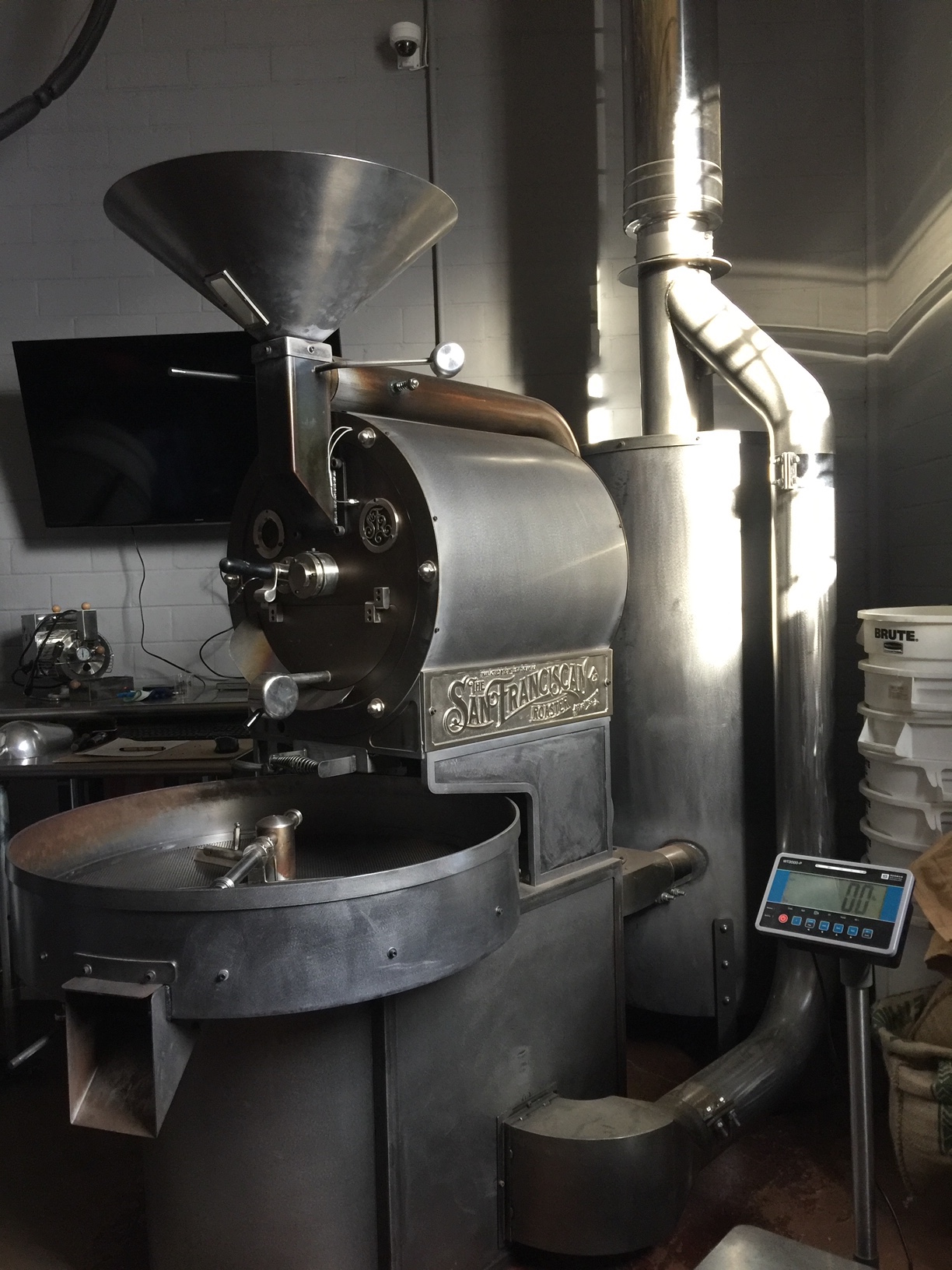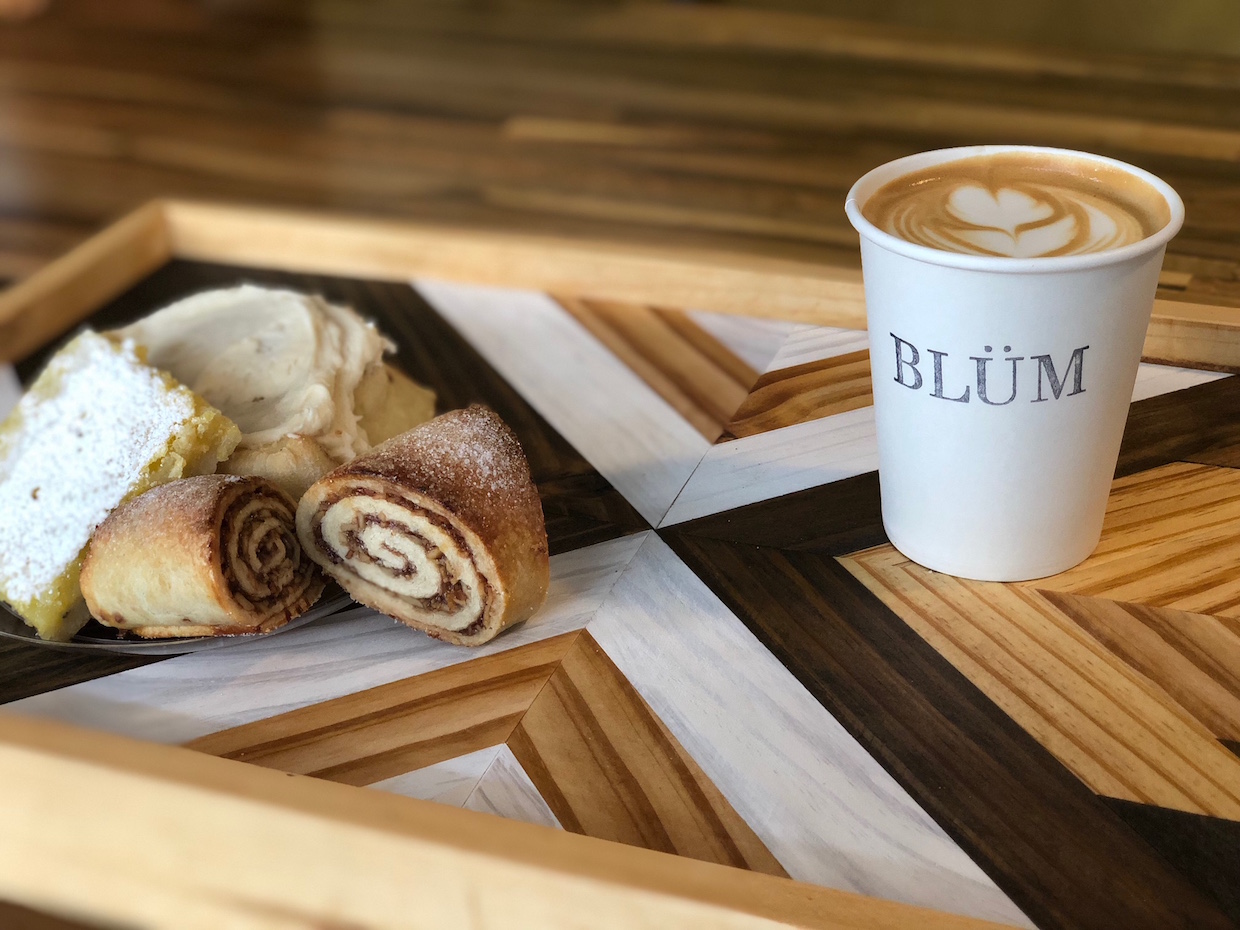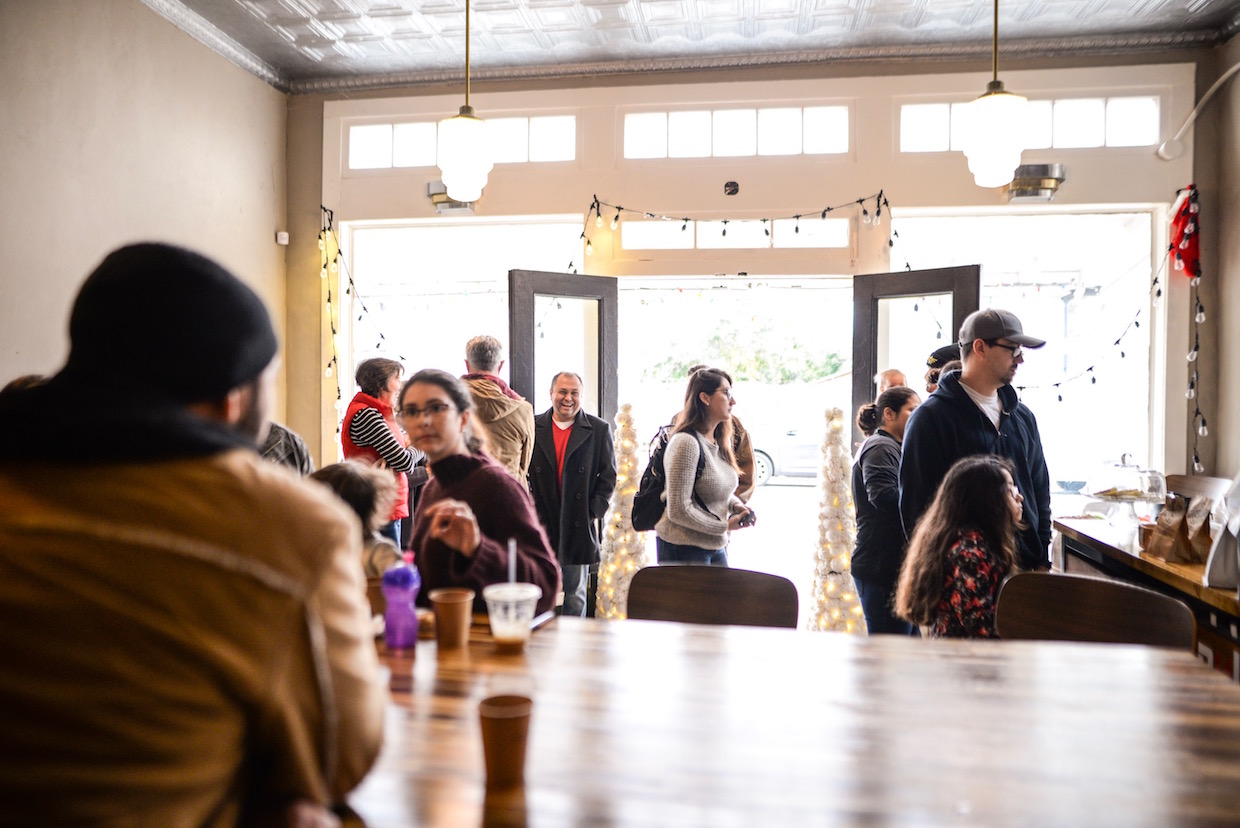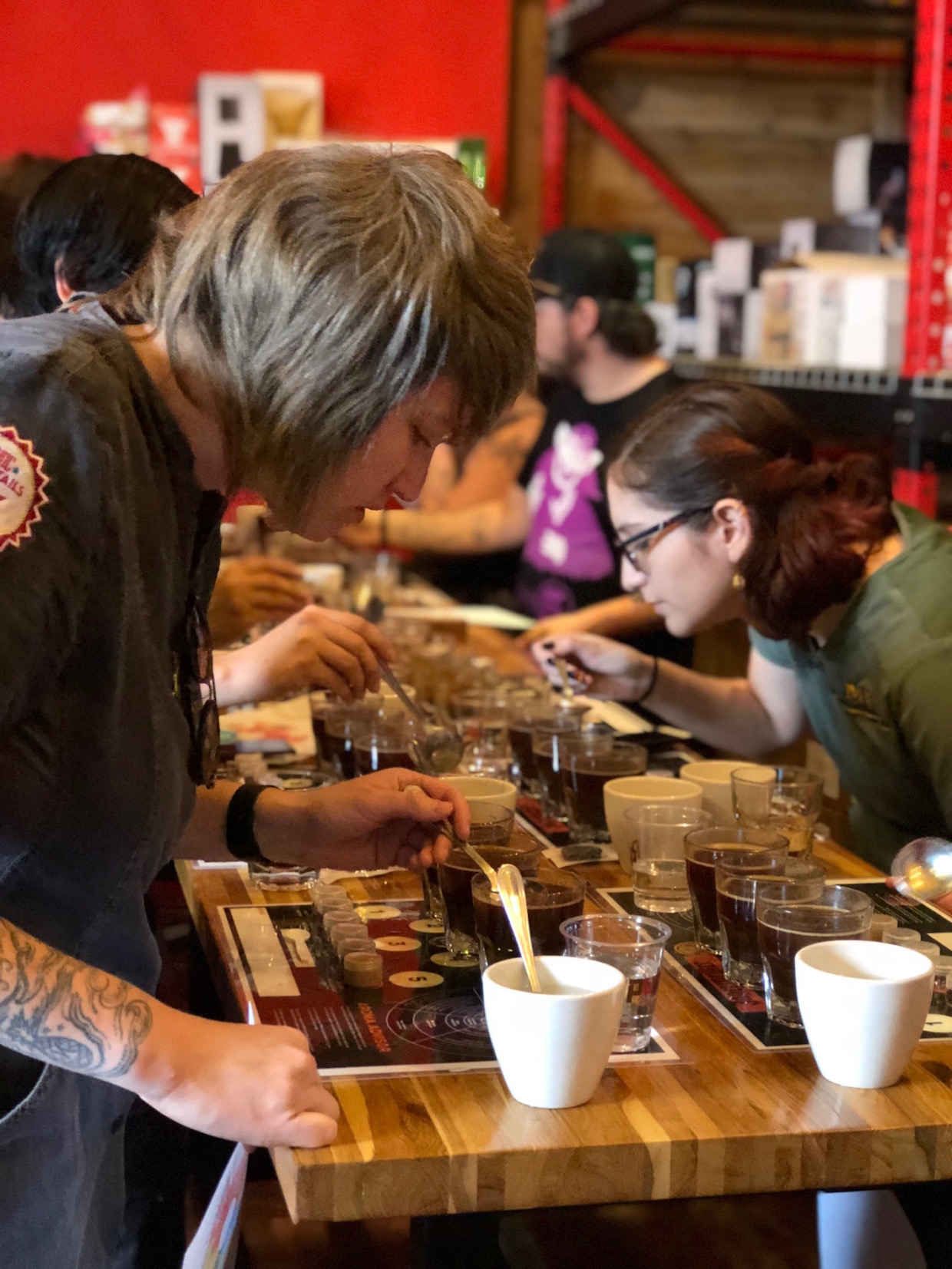
Pulp’s natural-finished San Franciscan production roaster. All photos courtesy of Pulp Coffee Roasters.
Pulp Coffee Roasters has been a friendly figure in the shadows of San Antonio’s exploding specialty coffee scene for the past three years, quietly raising the city’s collective coffee bar as a wholesale roasting company that specializes in private-label relationships.
Turning out what it considers uniquely sweet, high-quality roasts from its beautifully raw-finished San Franciscan SF-25, Pulp has to this point been content to remain almost a behind-the-scenes player.
“We’ve been like the best kept secret in San Antonio for the past three years,” Pulp founder James Mireles told Daily Coffee News.
While it will continue in its dedication to the private-label business, Pulp also now has a direct line into the retail experience with Blüm Coffee and Tea. Blüm is a separate company from the same co-ownership team of James and Liza Mireles, established roughly 18 months ago primarily to pave the way into the boutique specialty coffee and tea business for their two daughters.
Now expanding out of its farmer’s market origins, Blüm is staging series of pop-ups inside the 600-square-foot space where a proper Blüm cafe will soon be built out for a projected opening in the Spring.
“So many people have asked, ‘why does your coffee taste so different?'” said James Mireles. “We believe we make sweeter coffee by default. Because of that, Blüm came to pass where consumers could taste the high quality that we were doing three years ago, and now people are able to taste what we’ve been so known for, which is a very unorthodox way of roasting coffee.”
Mireles has decades of coffee industry experience under his belt, including stints at what he described as a couple of the biggest coffee retail chains in the world.
“When I challenged [the] green bean buyer, I kept getting the runaround of ‘Well, we don’t know,’ or ‘We can’t tell you,'” said Mireles. “And I said, this is crazy. I need to know the source. This is ridiculous. Are we buying commodity coffee, or are we buying specialty? They would never tell me.”
- James Mireles
- Liza Mireles
As a result, Mireles works toward honesty and transparency in Pulp’s operations. He’s happy to disclose that the secret to Pulp’s accentuated sweetness is no secret at all. It starts with an unusually high drop temp of over 500 degrees, which is a starting point he said most roasters consider out of bounds. He’s happy to share more with anyone who asks.
“There’s nothing secretive about the coffee world,” said Mireles. “I’ve been in it too long to be the cool hipster not sharing any information. In fact, we want to share to information. We believe in pushing the industry forward — not necessarily our brand and our agenda — it’s about the industry as a whole.”
That industry has recently exploded in Pulp’s home market of San Antonio. Mireles said that when he moved with his family back to SA four years ago, there were three local roasters, and now there are almost a dozen.
Blüm is brewing its way into that retail landscape with a Fetco XTS series 2151 batch machine and Mahlkonig EK43 grinder, plus a Mahlkonig K30 Air grinder paired with a Nuova Simonelli Musica Lux espresso machine for its current pop-ups. For the full cafe equipment spread, the shot-generator for espresso drinks will be upgraded to an Eversys Cameo superautomatic machine.
“I wanted no part in it.” Liza Mireles told DCN of her initial take on the super-auto option. “I did a blind taste test, and sure enough, [the quality was there].”
Liza Mireles started honing her palate in the 90s as a patron of independent coffeehouses across Orange County, California, continuing in the early 2000s to discover the depth of flavors crafted in the coffee bars of Portland, Oregon, and around the Pacific Northwest. She has also been a partner in Pulp from the beginning.
“When we had tested the Eversys e’4m over a year ago at Pulp, we were dialing in our coffee at 21.7 grams through that machine,” Liza Mireles said. “The taste was unparalleled. The Eversys Cameo just made sense because of the quality of coffees that Blüm brings in, especially the one that Blüm will open its doors with.”
James Mireles was also a skeptic until the manufacturer brought demo machines into the roastery.
“We were anti-superautomatics from the get-go, and then they brought the machine in, and we tasted our espresso, which was like no other,” said James Mireles.
“There’s no arguing, this is the future. Get ready. People are going to be anti because it’s not cool, but I’m sorry — I want to be consistent. I don’t want a barista who’s off on Monday, comes in on Tuesday and off on Wednesday and I go every day and it’s different every single time.”
At its 700-square-foot roastery downtown, Pulp will continue pulling shots on its 2-group Victoria Arduino White Eagle machine while also continuing to contribute to the rising tide of quality in San Antonio with its private label program.
“There’s a sweet spot in my heart for private label,” said Mireles. “There’s nothing better than seeing the person that receives a bag of coffee with their brand on it, it’s like no other feeling. You’ve made their day so special.”
Howard Bryman
Howard Bryman is the associate editor of Daily Coffee News by Roast Magazine. He is based in Portland, Oregon.












Comment